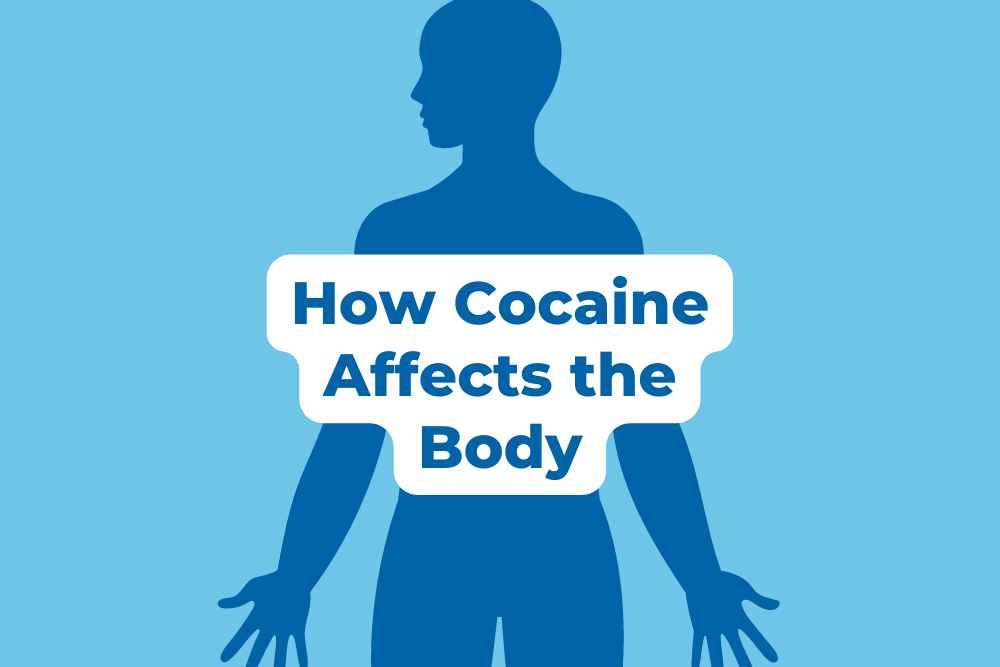Short-Term Effects of Cocaine
The primary risk of short-term cocaine use is developing a tolerance. The first time you use cocaine, it’s a brand-new experience for your brain. Future cocaine use will produce less powerful results, leaving you pursuing a high. While experimenting with cocaine once or even occasionally doesn’t necessarily mean you’ll become addicted, any use can be dangerous and increase your risk of becoming dependent on the drug at some point.
In addition to the excited, energetic feelings associated with short-term cocaine use, unwanted side effects can include paranoia, anxiety, irritability and restlessness. Taking larger doses of cocaine or combining it with other substances such as alcohol can be especially risky, causing violent or erratic behavior.
Cocaine abuse can have far-reaching consequences on your relationships, finances and overall well-being. While it is possible to reverse some of this damage, people who become physically and psychologically dependent on cocaine might continue experiencing negative effects years later.
Long-Term Dangers of Cocaine Use
U.S. overdose deaths from cocaine have dramatically increased in recent years, primarily due to the presence of a synthetic opioid called fentanyl. Cocaine dealers may cut their product with fentanyl to stretch their supply and get their customers hooked faster. Unfortunately, people who unknowingly take fentanyl-laced drugs are much more likely to die of an overdose because fentanyl is so strong.
Even if you manage to avoid overdosing, long-term cocaine use still puts you at a higher risk of developing an array of physical health issues.
Cardiovascular System
Because cocaine is a fast-acting stimulant, its immediate side effects include an elevated heart rate and blood pressure. Cocaine is incredibly addictive because of the quick, intense high it produces, but the euphoria comes with an increased risk of heart attack, stroke, blood clots, irregular heartbeat, chest pains and heart muscle damage. Even years after getting clean, former cocaine users can have lasting high blood pressure.
Respiratory System
Cocaine also affects the respiratory system because snorting or smoking drugs can destroy the delicate mucous membranes inside the nose and mouth, leading to nosebleeds and sinus infections. After prolonged use, some cocaine abusers develop a hole in their septum. People who smoke cocaine in crack form are at particular risk for a condition known as “crack lung,” a form of inflammation that leads to chronic coughing, wheezing, painful breathing and a higher risk of lung infections such as tuberculosis and pneumonia.
Brain Damage
Cocaine restricts blood vessels, limiting oxygen supply to the brain. Long-term cocaine use can lead to strokes, seizures, brain shrinkage, poor decision-making skills and mood disorders. Some evidence suggests cocaine use also ages the brain, leading to Alzheimer’s-like symptoms of memory loss.
Accredited Addiction Treatment at Beach House
If you regularly abuse cocaine, you will increase the chances of experiencing adverse health effects. Without immediate treatment, an addiction can worsen and leave you only a shadow of your former self. Luckily, with help from our cocaine rehab facility, you can get clean and sober and stay that way for life.
Cocaine addiction treatment at Beach House can include medically supervised detoxification, followed by a stay in our residential rehab facility. If your substance use disorder includes co-occurring mental health conditions like depression or PTSD, we will create a customized dual-diagnosis plan to address both issues simultaneously.
If you are ready to learn more about treatment options for a cocaine addiction, or what sets Beach House apart as one of the nation’s leading addiction rehabs, we invite you to call our counselors for a confidential assessment today.
Related Articles :
Long-Term Effects of Cocaine Abuse
What Happens When You Do Coke?







